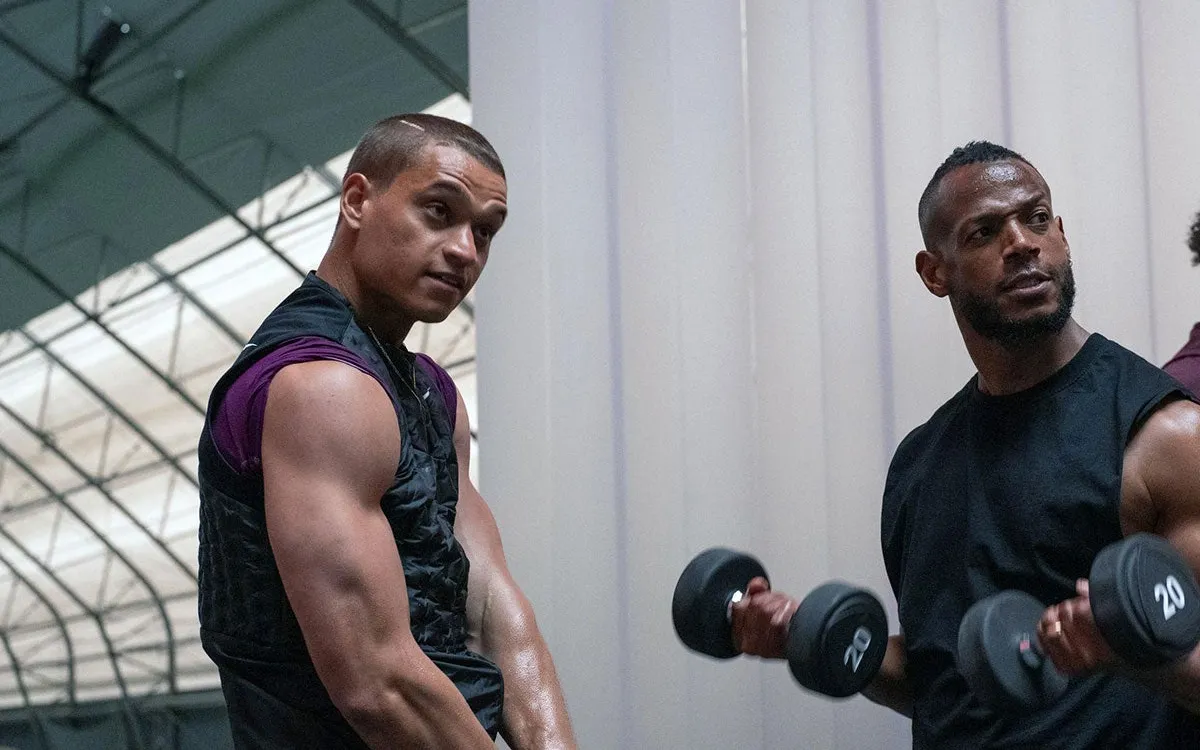
In this detailed review of the new horror film 'Him', produced by Jordan Peele, I entered the screening with a set of specific concerns. Primarily, I wondered if the film would center on the narrative that football is dangerous. After all, we have seen similar themes explored in previous films, including the well-known portrayal of the NFL's risks in movies like Concussion. Additionally, I questioned whether it would delve into the outdated racial views held by NFL owners, a topic that is all too familiar in real life. Lastly, I considered if it would mirror the early-2000s ESPN drama Playmakers, which was notably canceled due to pressures from the NFL. Fortunately, 'Him' takes a different approach, blending horror with the complexities of the sports world.
'Him' is undoubtedly a peculiar film. Whether it can be classified as "good" is debatable, and if viewed through a lens that doesn’t focus on football, its hour and 36 minutes may not seem particularly engaging. However, credit must be given to Peele and director Justin Tipping for exploring new territory within the realm of horror films that intersect with sports culture. The film presents several plot holes that left me questioning whether the creators had a solid grasp of football, or if they simply assumed the audience wouldn’t notice.
The central storyline of 'Him' revolves around two quarterbacks: Marlon Wayans' character, Isaiah White, the best quarterback in a fictional league mirroring the NFL, and Tyriq Withers, portraying the rising star Cameron Cade. Isaiah is a megacelebrity nearing retirement, while Cam, fresh off a mysterious brain injury, begins training at Isaiah's eerie compound. The film opens with an unsettling scene where a passionate fan expresses her disdain for Cam, illustrating the intense and sometimes cult-like nature of sports fandom.
The film does a commendable job of examining the psychological aspects of both being a fan and a player. While I initially thought the movie might shy away from critique of the executives running the sport, it ultimately delivers a shocking finale involving a team owner meeting a gruesome end. However, the film’s internal logic falters at times, particularly regarding Cam's transition to a top-tier team, as well as the mysterious nature of his brain injury.
Despite its flaws, 'Him' makes bold statements that many other films in the sports genre do not. It critiques the cult-like devotion of fans and the ruthless nature of the NFL’s power dynamics. The fictional team, the San Antonio Saviors, serves as a representation of how deeply embedded professional sports can become within community identities.
At its core, 'Him' highlights the intense, often toxic relationship between quarterbacks and their fans. The film’s portrayal of Isaiah and Cam sheds light on the additional barriers nonwhite quarterbacks face in gaining the trust of coaches and fans alike. As the story progresses, it becomes evident that being a successful quarterback requires a level of arrogance and detachment that most people cannot maintain.
In conclusion, while 'Him' may not emerge as a top contender in the list of greatest football films, it certainly adds a unique voice to the canon. By exploring themes of toxic fandom, corporate greed, and the psychological demands placed on athletes, the film critiques the very culture it represents. The willingness of NBCUniversal, a major player in the NFL broadcasting space, to support such a project is commendable, especially in today's climate of media consolidation and censorship. While the film may leave audiences with more questions than answers, its ambitious narrative deserves recognition.